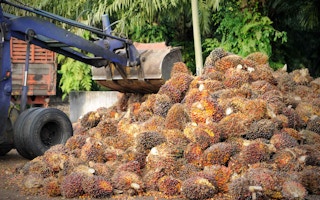More companies are cutting back supplies from Malaysian palm oil giant IOI Group after its suspension from the world’s largest association for ethical palm oil production, the RSPO.
Hershey’s, Colgate-Palmolive, Johnson & Johnson, Procter & Gamble, SC Johnson, Yum! Brands and Reckitt Benckiser are all disengaging with IOI after its suspension from the Roundtable on Sustainable Palm Oil over three of its operations in Kalimantan, the Indonesian part of Borneo, according to Deborah Lapidus, campaign director at Waxman Strategies, a Washington-based firm that campaigns to end deforestation.
The three subsidiaries are alleged to have violated a raft of RSPO standards meant to prevent rainforest destruction and social conflict, and to have broken several laws.
Unilever was the first buyer of IOI’s RSPO-brand “Certified Sustainable Palm Oil,” or CSPO, to drop the supplier. The Anglo-Dutch consumer goods giant was followed by Kellogg, Mars and Nestle.
Dunkin’ Donuts is looking into whether IOI is a supplier and will drop it if it is, Lapidus, who has corresponded with the brand-name companies in recent days, told Mongabay.
The palm oil using companies appear to be cancelling or suspending existing contracts with IOI while they transition their supply from the Malaysian conglomerate to other producers. Most have said they will engage with IOI on its remediation plan, according to Lapidus.
“While there is always a risk that the customers will reengage too soon, they have been burned by IOI too many times over the past few years on ethical issues to take this decision lightly,” she told Mongabay.
“Based on our correspondences, I am optimistic that companies will be very cautious to reengage IOI as a supplier until IOI Group has demonstrated that it has resolved the many breaches raised in this complaint and is fully committed at the highest levels to implementing its No Deforestation, No Peat, and No Exploitation policy.”
Mondelez, another IOI customer, would not comment on IOI but “[suggested] it [would] be looking elsewhere for palm oil too,” according to Food Navigator, which has corresponded with the firm.
Greenpeace has called on IOI’s customers to refrain from reengaging with the supplier until “transformative action” can be demonstrated.
The NGO wants IOI to introduce an “immediate moratorium on all plantation development across its supply chain, before moving quickly to protect and restore the forest and peatland landscapes it has damaged,” Kiki Taufik, the head of Greenpeace’s Indonesian forests campaign, wrote in the Guardian on Saturday.
The brand-name companies are dropping IOI because they have committed to purge their supply chains of deforestation, conversion of carbon-rich peatlands, and human rights abuses like forced labor. None of the consumer goods giants, though, can yet claim to have traced its supply chain to the plantation level, a prerequisite for achieving their ambitious goals.
Even IOI has adopted such a policy, though green groups have repeatedly flagged its operations for violating the RSPO’s rules, which don’t ban all deforestation but do bar the destruction of pristine virgin forests and certain “high conservation value” areas.
Aidenvironment, which in 2015 filed a complaint with the RSPO against the three operations for which the IOI has been suspended, noted that the brand-name companies’ own policies are stricter than the RSPO’s standards, and so the “market suspensions should not be lifted when IOI merely satisfies the RSPO Complaints Panel,” the NGO said in a statement.
Eco-Business republished this story with permission from Mongabay. It was originally published by Mongabay under Mongabay Reporting Network, licensed under Creative Commons.










